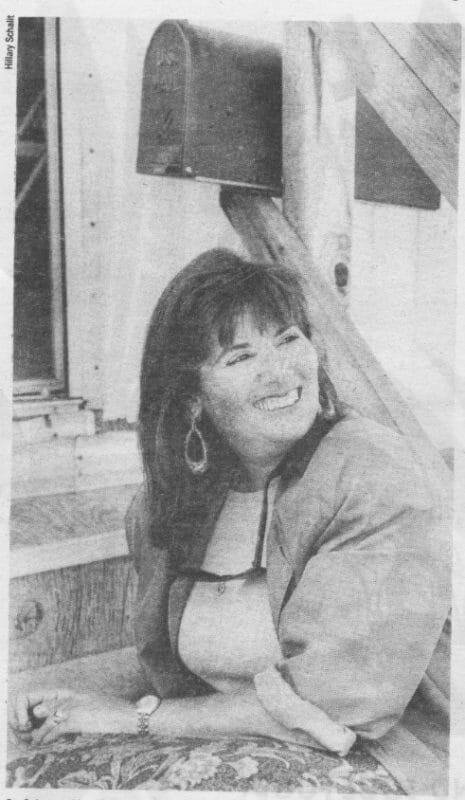SOME WILLOW GLEN residents are crying foul because a temporary homeless shelter will be opening next month at the Willow Vale Free Methodist Church. It’s a refrain heard in other parts of this normally tranquil San Jose bedroom community during the last two years.
A minority of residents complain that the shelter is an inappropriate new neighbor which may introduce a host of social ills as it simultaneously welcomes 15 homeless residents for a one-month stay.
But several hours spent at another area church which is currently hosting the rotating shelter suggests that residents’ anxiety over the program may be misdirected.
On a recent evening, an ethnically diverse group of men watched a football game after finishing a meal of pasta, salad and garlic bread prepared by church volunteers. Program manager Marty Cameron joined a half-dozen volunteers as they circulated through the dining room and kitchen. They washed pots and pans or stopped to chat with the residents – men ranging in age from 22 to 54 – while some of the volunteers’ children scamper about underfoot.
Community Inns, this citywide program which provides its residents shelter for a maximum of 90 days, is not just a haven from the elements; it’s also a shield from dehumanization. And for Community Inns residents, Marty Cameron is their guardian angel.
“Marty said to me, ‘It would be a whole lot easier on you if you’d cut your hair and become mainstream, but I’m not going to tell you how to live your life,'” says Robert, a biker whose long, wavy blond hair falls over his lean muscles and ruddy skin.
“When a person like Marty reaches out and says, “I’ll help you help yourself,’ that means so much. If you don’t have someone whispering, “You’re a good guy,’ it won’t work. That makes going up that hill possible. Not easier – possible.”
Praise like this is especially meaningful to Cameron, who tries her best to straddle the line between being a softie and a hard-liner. She hand-picks all the men who come into the program, calling them “the cream of the crop” of the homeless population. During this rigorous screening process, Cameron made a few of the men who now compliment her come back again and again until she was sure they were serious about the program.
Since Cameron began work in May, 12 men under her wing have found housing but five more were asked to leave the program because they weren’t complying with the rules.
The regulations of Community Inns, a subsidiary of InnVision, San Jose’s largest year-round shelter provider, prohibit the program’s male residents from drinking or doing drugs. Hours of operation vary from church to church. At Willow Glen United Methodist Church, where the program has found a home for the last three Augusts without incident, residents must leave the premises by 7am and return between 7pm and 9pm. Those who work late are excepted. The all-male residents all have chores, like cleaning the rest rooms or mopping the floors. Lights are out by 10pm and the men must hit the sack by 11pm.
Most residents work at part-time or full-time jobs. Some toil with moving companies or work as day laborers or landscapers. They enjoy access to the Central Branch YMCA for workouts, athletics or showers.
Cameron meets with each other charges for an hour a week. She passes on ads for employment, but doesn’t find jobs for them. The program is designed to help each homeless client save a suggested $1,500 toward a rent deposit on a place to live.
Residents who oppose the program in their community are responding to their own fears of becoming homeless, Cameron says.
“I have friends, successful people in business, who say that their ultimate fear is that they’re gonna end up as a bag lady in the streets,” Cameron says. “I’m not sure that I have that fear, because I believe in my resourcefulness. Things just work out for me. But they don’t for everybody.”
Cameron, who is in her 40s, speaks with authority; she very nearly lost the roof over her head once. A Los Gatos native, she got pregnant in high school and moved to Chicago at age 20. Living from paycheck to paycheck, she says, she was often on the verge of homelessness, although she didn’t realize it at the time.
When she was fired from a stultifying office job, she was devastated, she recalls; the rent was due and her daughter, Lisa, was only 4 years old. But she landed a job right away, managing a department in a hardware store only two blocks from home.
Still, Cameron says she didn’t realize the degree of emotion among some of Willow Glen’s residents until a woman called her a few weeks ago to vent her rage. Although Cameron says she mailed information to her, offered to meet with her and told her she couldn’t imagine any of the men robbing a house, she says the resident is still angry.
Neighbors have complained that they were not given enough advance notice about the church’s intention to participate in the program, although Willow Vale Free Methodist Church sent a letter to its neighbors on June 17 announcing its plans. Some residents have also expressed worries that the men are not diligently screened and that they are not monitored in their progress.
Last month, however, Willow Glen Neighborhood Association President Nell Aiello and InnVision Executive Director Christine Burroughs met and agreed to work together to lessen the tension between these two organizations.
Cameron compares the neighbors’ reaction to what her still-living grandmother says about alcohol and drug abusers: “If they wanted to stop, they’d stop.” Her naive grandmother has never had an addiction to alcohol, drugs or tobacco, Cameron explains. Likewise, she says, if the neighbors only met some of the residents, they’d encounter the kind of folks they could invite to dinner.
While many neighbors evidently think the residents are chronic alcohol and drug users, Cameron says the men have just had a hard time keeping a job or have suffered a crisis like being kicked out of their home by their wives.
Eight years ago, Cameron’s own ten-year marriage dissolved. At first, she blamed her unhappiness and disillusionment upon her marriage, but then she looked inward to change herself – a philosophy she espouses to the men in the program.
This urge to help people stems from taking care of her six younger siblings as a child, Cameron says. In 1988, she took a job locally working with hospitalized drug and alcohol abusers. Looking at the dark sides of people made her examine her own shadows, she says, and she stopped abusing alcohol and drugs as a result. Later, she moved on to the position with Community Inns.
Today, she and her husband, a successful comptroller, own a small tract house with a pool in Cambrian Park. Cameron doesn’t feel guilty that she has a stable home. “I see hope with a lot of my clients,” she says. “I believe their situations are gonna be different at some point.”


